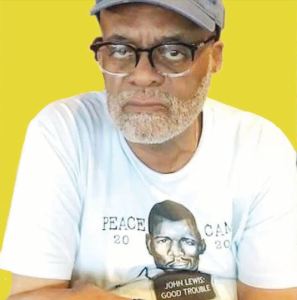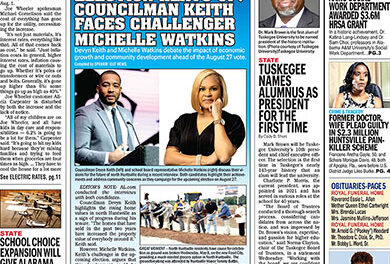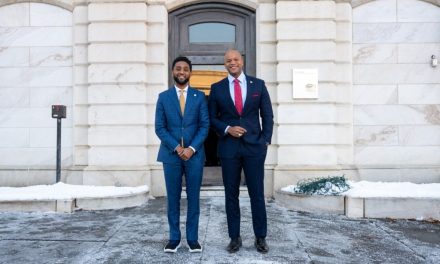By Ralph E. Moore Jr.,
Special to the AFRO
“You know, the one thing we did right, was the day we started to fight. Keep your eyes on the prize, hold on.”
Let’s review: While there are 11 White U.S. saints, the fact remains that in 2023 there are no African American saints from the U.S. to have ever been recognized by the Catholic Church.
This is actually a civil rights issue.
The Catholic Church has historically and institutionally ignored laws that provided equal protection for all. Many Black Catholics can remember the overt second-class membership they were subjected to in the past by the White majority Catholic Church in the United States.
As the Supreme Court ruled against segregation in education in 1954, Catholics were banning Blacks from seminaries and convents.
As Rosa Parks sat down to protest unfair seating on buses policies and practices in Montgomery, Alabama in 1955, Blacks were required to sit in the back or in side aisles away from White congregants inside houses of worship.
Just as there were racially separate drinking fountains in the larger society, some Catholic churches insisted on separate holy water fountains, meant for people to bless themselves when entering the church.
As Martin Luther King Jr. and his followers practiced non-violence and civil disobedience against segregation laws for racial justice, they were affecting the command of Jesus Christ to “turn the other cheek.” Like Christ, Blacks, Browns, Whites and Asians who endured beatings, dog bites, forceful fire hoses and rejections, were enduring unearned suffering.
Martin Luther King in his “Principles of Non-Violence” reminded us that “unearned suffering is redemptive.” African Americans learned that lesson’s correlation of the crucifixion of Jesus to Blacks being hung from trees from Black Theologian, James Cone’s 2013 book, “The Cross and the Lynching Tree.”
The point is that Black Catholics have always had to fight for their God given (and U.S. Constitution guaranteed) right to be treated as equals, as first-class citizens and as members of their church. They were taught in school and in church that everyone on Earth is “a creature made in the image and likeness of God.” And yet, with their exclusionary practices, many White Catholics didn’t see themselves through the eyes of a God with love for all. Whites made God in their image of whiteness: superior, separate, subjugating, and hateful.
Black Catholics have lived with the contradiction of the Gospels since the earliest days of enslavement in the United States in 1619, when first arrived in this part of America. And so, we find apartheid remains in the communion of Catholic saints. And find what is rightfully theirs (representation of themselves for honors as they are no less deserving than all the Whites).
There are no Catholic churches in this country named for an African American because you must be a saint for that to happen. And until Black Catholics started posting pictures of Black saints from abroad inside their churches, Catholic officials had subliminally seduced attendees into thinking that God who only wanted White attendees to feel loved and recognize their image in his house.
How in the hell did that happen?
There is a process for decided exceptionally good persons to be honored with the designation of sainthood in the Catholic Church. Many in Guilds and in a Baltimore Black Catholic church initiative are advancing the causes of the saintly six from the United States: Mother Mary Lange, Father Augustus Tolton, Mother Henriette DeLille, Ms. Julia Greeley, Mr. Pierre Toussaint, and Sister Thea Bowman. Their stories can be found in ‘Black Catholics on the Road to Sainthood,’ edited by Michael Heinlein. Many believe a seventh candidate, Brazilian Father Martin de Porres Ward, is deserving of having his name, image and deeds added to the list of the ‘Saintly Six’ by some.
The process to be declared a saint is difficult, long, secretive, and financially expensive. And the fact that no African American has ever made it, despite enduring enslavement, segregation, mass incarceration and mass poverty– not to mention living lives of generosity, courage, inspiration and faithfulness– feels like that old saying, “no good deed goes unpunished.”
The $1,000,000 price tag often quoted as attached to the canonization process is reminiscent of the poll tax which served as a precondition of exercising the right to vote (going back to the late 19th century in some states). Catholics Black, Brown, White or Asian cannot name a church they build after any of the Black persons in line for sainthood until collectively all the $6,000,000 are paid and the rest of the complicated process is approved. Not having enough money is one of the reasons there are no Black saints from the United States. Incidentally, the United States Supreme Court ruled poll taxes unconstitutional on March 26, 1966. Isn’t it time for the Vatican to remove its fee requirements from the process to name saints?
It may be that Catholic lay persons, clergy, sisters and brothers, who are also White supremacists, and consider themselves good Catholics, believe that the poll tax did a fine job in the old days. Some may feel that the prohibitive price for sainthood is intentionally maintaining an aspect of the church’s segregated practices of the past.
Passing a literacy test was also required in some states before persons of color were allowed to vote in the days before the Voting Rights Act was passed by Congress and signed into law by President Lyndon Johnson in 1965. The church expects proven medical miracles, while keeping the faith through the prejudice and discrimination of living an enslaved person’s life, being treated as inferiors, being excluded from Catholic institutions after contributing to church offerings, constructing churches, schools, houses and hospitals and just plain keeping the faith is ignored. The position, the initial narrative submission part of the process, is the set of documents that make the argument for persons to be considered suitable for sainthood. It is a subjective evaluation parallel to the literacy test of old. It too should be eliminated, particularly as it pertains to the African American candidates for sainthood.
The bottom line is that the net result of the Catholic sainthood process excludes Black Americans. It is a process made of rules to which exceptions have been and are applied.
The Social Justice Committee of St. Ann Church in Baltimore will be traveling to Vatican City in Rome to make the fairness and equity in results arguments to the Pope and/or the Dicastery for the Causes of Sainthood, the committee of Cardinals who recommend successful candidates for sainthood to the Pope.
We are waiting to get an audience scheduled or an appointment. In the meantime, we are “keeping our eyes on the [saintly] prize and holding on.”
The post The Moore Report: Keeping our eyes on the saintly prize appeared first on AFRO American Newspapers .










